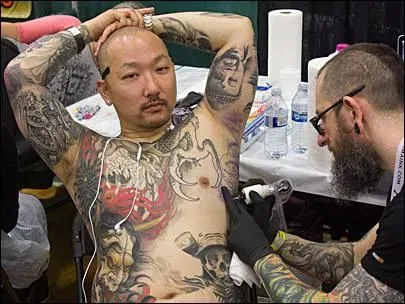
South Korea Legalize Tattooing Without Medical License in Historic Vote
- Life & Style
- September 25, 2025
- No Comment
Report by “Safarti Tarjuman” International News Desk
SEOUL, South Korea — Tattoo artists in South Korea have won a decades-long battle after parliament voted unanimously to end the country’s ban requiring tattooists to hold a medical license. The landmark Tattooist Act passed the National Assembly with a 195-0 vote, officially establishing a legal licensing system for tattoo professionals under government regulation.
Until now, South Korea was the only industrialized nation where tattooing was restricted to licensed medical practitioners. The new legislation will allow tens of thousands of tattooists to work legally, ending years of fear over fines and imprisonment. The law will come into effect following a two-year grace period once formally signed by President Lee Jae Myung, who has already expressed support.
Outside the National Assembly, around 30 tattoo artists erupted in cheers, waving placards that read, “We welcome the Tattooist Act.” Some embraced with tears of relief.
“I’m deeply moved,” said Jang Young Ah, 33, owner of a Daegu-based tattoo studio. “We will take extra care to ensure safety and hygiene so that this profession can grow responsibly.”
The bill represents a major victory for tattooists who for decades risked up to five years in prison or fines of 50 million won ($35,740) for practicing their craft. Many had operated in secrecy, keeping their studios unmarked and locked, while some relocated abroad due to fear of police crackdowns.
The reform reflects changing perceptions of tattoos in South Korea. Once stigmatized as symbols of crime or gang culture, tattoos have become mainstream, thanks to K-pop idols, actors, and influencers proudly showcasing body art.
A 2023 Health Ministry survey found that fewer than 7% of people with tattoos had them done in hospitals, despite the old rules. A 2021 Gallup Korea poll showed 5% of respondents had body tattoos, while 28% had semi-permanent cosmetic tattoos such as eyebrows or eyeliner. Experts estimate millions of South Koreans now have tattoos, most for cosmetic purposes.
The previous restrictions dated back to a 1992 Supreme Court ruling that defined tattooing as a medical procedure, citing infection risks. However, authorities rarely enforced the ban strictly, allowing an underground tattoo industry to flourish.
Park Jumin, chairman of the assembly’s health committee and one of the bill’s champions, said the new law would protect both artists and clients.
“Many lawmakers here have eyebrow and lip tattoos,” Park admitted. “These procedures were technically illegal because of outdated laws. This act will finally bring them into a safe, regulated system.”
The Tattooist Act requires practitioners to obtain licenses, follow strict hygiene standards, and operate under government oversight. Supporters say the change will legitimize a creative profession while safeguarding public health.
Thank you for reading! For comprehensive news coverage and exclusive stories, visit SafartiTarjuman.com




